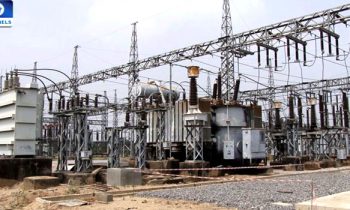About 63 million Euros has been approved for the Siemens’ Presidential Power Initiative (PPI) project. The money would be used for the purchase of transformers and to set up mobile substations across the power network in the country.
Following this is the opening of letters of credit from the financials of the projects.
The chairman of the Nigerian Electricity Regulatory Commission (NERC), Shehu Garba, just last week Monday disclosed that the commission has approved a set of capital projects identified by Electricity Distribution Companies Discos and Transmission Companies of Nigeria (TCN) which would be executed through Siemens Energy Nigeria.
He said: “This is straight forward and regulatory procedure requires that all capital investment through the networks must get approval from the commission, because at end of the day it would be tariffed. “This has been done.”
In addition to this, he said, Siemens has also submitted the first set of quotations for the projects, and “I also understand that Siemens has identified equipment, procurement and commission (EPC ) contractors for the installations of OEM equipment.”
Currently, according to sources within the Ministry of Power, the minister of Power, Aliyu Abubakar is on facility tour of the facility of some of the companies that would manufacture those items or equipment that would be used.
The Federal Government last October said that the EPC Contractors for Presidential Power Initiative (PPI) will soon be contracted officially so that work on the project implementation can commence.
The project is expected to make available 25,000 megawatts of electricity by year 2025 from the current 4,000mw.
The Minister of Power, Abubakar D. Aliyu, while presenting status report of the reform agenda in the power sector in the last 50 days last year, said, the first phase of the project started in earnest this year, with the ongoing pre-engineering phase.
“The selected EPC Contractors will soon be contracted officially so work on the project implementation can commence,” he said.
Siemens Energy Nigeria and the Federal Government in 2020 entered into a Power Infrastructure revamp agreement. It is a government-to-government agreement. The Nigerian Electrification Roadmap (NER) is a partnership that will expand Nigeria’s electricity capacity from the current average output 4,500MWh/h to 25,000MW.
“We are confident that the NER will succeed because of the pedigree of Siemens and their footprint in the Global Power Industry.”
“The first phase of the PPI is the upgrading and expansion of the vital infrastructure of the TCN and Discos with the end goal of achieving 7,000MW.
This first phase started in earnest last year, with the pre-engineering phase.
According to the minister, a lot has transpired, stating further that this he said, reinforces his inaugural assertion and conviction that you do not need to be a magician to Perform.
“I do believe that a determined and motivated team will always find a way to mobilize resources and deliver on its assignment. We have put in place goal delivery machinery which is operational.
With this in place, many of our lingering challenges in the Power Sector are now being addressed in a Methodical, systematic, and Proactive manner.”
He said his team is working tirelessly as it explore opportunities that will, in the short term, deliver the much-desired quick wins whilst still focusing on the long-term objectives of increasing the available Power, improving the quality of services, attracting the much-needed investment, promoting efficiency, competition and growth and lastly ensuring transparency and accountability in the value chain of the Power Sector.
The Ministry he said is intensifying performance monitoring of the licensees and the licensing regime, especially their revised Performance Improvement Plans (PIP) to have a better understanding of why some critical stakeholders are performing below expectation.
“We shall be taking a careful and detailed look at issues of policy, capacity and the technical requirement, amongst other things.
“One very critical concern that we must address in this performance monitoring process is to find out if the terms for granting of licenses were onerous.”



